


Will Trump’s Peace Plan Gain Traction?
Written By: Prof. Tamar Hermann, Prof. Ephraim Yaar
The monthly Peace Index of the Israel Democracy Institute and Tel Aviv University, published today, finds that most Israelis think that Trump’s peace plan won’t gain traction and that the IDF should directly target ‘terror kite’ assailants.
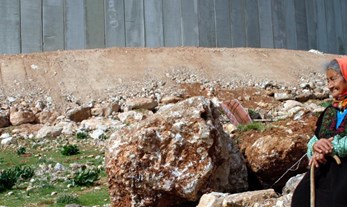
In Israeli Residency Case, Individual Responsibility vs. Collective Punishment
Written By: Colonel (Res.) Dr. Liron A. Libman
While collective harm may be justified in some circumstances, collective punishment should never be allowed: one person’s rights should not be taken hostage to influence the behavior of others.
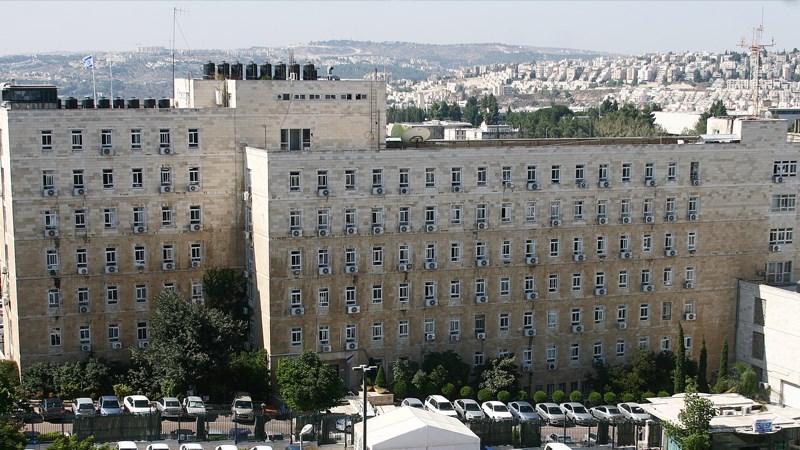
The Attack on Legal Oversight Threatens Us All
Written By: Prof. Yedidia Z. Stern
Government-sponsored legislation proposing to change how ministry legal advisors are appointed has stirred up quite a storm. The idea should worry all of us, not only jurists.

A Misconstrued Perception of Who the "Bad Guys" Are
Written By: Prof. Yuval Feldman
Behavioral ethics, a growing area within psychology and management literature, demonstrates that an individual’s unethical behavior is demonstrated through self-deception.

The Conscription Plan: Taking the Easy Route to Inequality
Written By: Dr. Gilad Malach
Though many ultra-Orthodox politicians expressed outrage at the original publishing of this new bill, some view the proposal as a double achievement.

Jews Worldwide Must Resist The Power Grab Of Israel’s Chief Rabbinate
Written By: Dr. Shuki Friedman
Step by step, the Chief Rabbinate is turning itself into the central source of halakhic legitimacy not just within Israel’s borders but beyond them, and becoming a global force through securing its power all over the Jewish world.

On Political Appointments of Legal Advisers in Government Ministries
Written By: Yohanan Plesner , Prof. Yuval Shany, Prof. Yedidia Z. Stern
The Israel Democracy Institute ahead of the Knesset Constitution Committee debate on political appointments of legal advisers in government ministries: "A blow to the civil service ethos; an opening for potential corruption, forsakes public interest".

Clarifying the IDF’s Record During the Gaza Riots
Written By: Yohanan Plesner
Israel’s supporters, who have the nation’s best interests at heart, should resist the urge to engage in partisan smear campaigns that attempt to tarnish the reputations of patriots who are on the frontlines of the struggle for Israel’s legitimacy as a Jewish and democratic state. We have enough enemies on our borders.
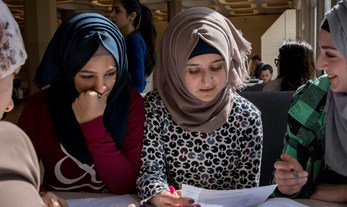
Involving Arabs in political decision-making is right in principle and vital for Israel’s social cohesion
Written By: Dr. Nasreen Haddad Haj-Yahya
The majority of the Arab public want to be included in the State’s decision-making processes, and support Arab ministers serving in the government.

Israel’s future labor market needs updated models
Written By: Prof. Yotam Margalit
The number of vacation days in Israel is among the lowest in the world. Research by Prof. Yotam Margalit presents a new model which will ensure a minimum of 18 vacation days for each worker.
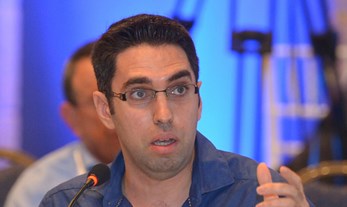
Israel needs a Paradigm Shift: Greater Compatibility Between Human Capital and the Economy
Written By:
Israel suffers from a shortage of skilled workers in manufacturing industries and hi-tech and an overflow of the service sector; priorities in the allocation of public resources for the training of human capital must be changed to better fit the needs of the economy.

Survey of Public Attitudes on Economic Policy (June 2018)
On the occasion of this year’s Eli Hurvitz Conference on Economy and Society (June 19-20) the Israel Democracy Institute published a special survey to assess public opinion on Israel’s economic future.
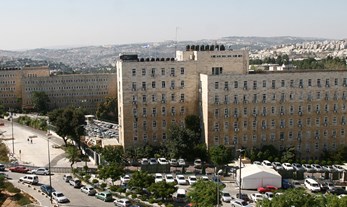
Untangling the Web of Bureaucracy and Regulation
Written By: Daphna Aviram-Nitzan
Israel’s ranking on international indices of regulatory and bureaucratic burdens has been far from flattering - a closer look reveals the difficulty in complying with the demands of the complexity and inefficiency of Israel’s bureaucracy and regulatory system.
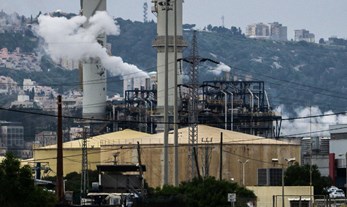
A Regulatory Roadmap for Investors: Current State and Recommendations for Improvement
Written By: Daphna Aviram-Nitzan
The “Regulatory Roadmap for Investors” was initiated against the backdrop of the heavy bureaucratic and regulatory burden with which the business sector must contend when establishing new manufacturing plants and doing business in Israel.

Mission: Open a factory in Israel in 18 months
An ambitious plan aims at slashing the 4-6 years it currently takes to pass all the regulatory hurdles in Israel

Top OECD Official: Israel Must do more to Integrate Arabs and ultra-Orthodox into the Economy
Dr. Peter Jarrett, the head of the Country Studies Division at the OECD, says the government must do more to integrate all Israelis into the economy if it is to continue to prosper and grow. "Boasting that Arabs and Ultra-Orthodox Aside, Israel's Situation is Excellent - is Simply shortsighted and Foolish."
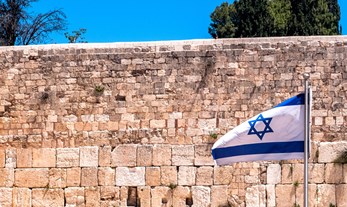
Israelis Are More Traditional Than You Think
Written By: Dr. Shuki Friedman
More than 25 years ago, the “Basic Law: Human Dignity and Liberty” affirmed that Israel is a “Jewish” and “democratic” state but did not define either of these terms in the Israeli context. Now is the time for us to turn to the Jewish identity that has been adopted by a large portion of Israel’s Jews and allow it to shape the country’s Jewish character.
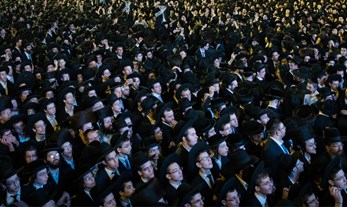
Proposed Draft Bill Puts the “People's Army” at Risk
Written By: Yohanan Plesner
Yohanan Plesner, President of the Israel Democracy Institute cautions that the Ministry of Defense’s proposed draft bill “endangers IDF’s model of service as a “People's Army” based on the principle of mandatory service for all
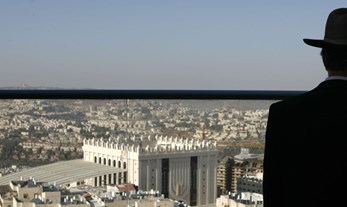
Israel’s Looming Ultra-Orthodox Housing Crisis
Written By: Dr. Lee Cahaner
The Minister of Finance has invested tremendous resources in meeting the needs of the Israeli middle class. However, even with these efforts, the minister has failed to address the ultra-Orthodox’s needs — a mistake that has contributed to an acute housing crisis for this sector of Israeli society.
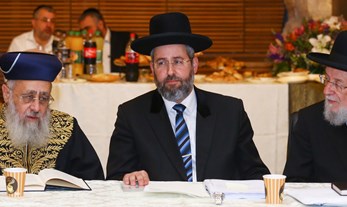
It is up to chief rabbis to preserve us as one people
Written By: Prof. Yedidia Z. Stern
On the practical side, religious conversion hasn’t ‘delivered the goods’ so far. Although it has been officially declared a national mission, less than 10 percent of non-Jewish immigrants and their offspring have completed the process. As a result, one in 20 non-Arab Israelis isn’t recognized as a Jew, despite having made aliyah under the Law of Return.

Will Israel go to war in the coming months?
Written By: Prof. Tamar Hermann, Prof. Ephraim Yaar
The monthly Peace Index of the Israel Democracy Institute and Tel Aviv University, published today, finds that the Israeli public split on prospect of war in the coming months

Proposed Conversion Law
Written By: Prof. Yedidia Z. Stern
Prof. Yedidia Stern, Vice President of the Israel Democracy Institution said that the proposed conversion law is an important step. The state must take responsibility and resolve the issues that affect so many lives

Preserving the Rabbinate’s monopoly over the kashrut market: the consumer will be the one to pay
The Israel Democracy Institute on the Ministry of Finance and Rabbinate's decision to preserve the Rabbinate’s monopoly over the kashrut market in Israel: the consumer will be the one to pay

Rabbinate’s criteria to recognize of rabbinical courts abroad - problematic
IDI on the Rabbinate’s publication on the recognition of rabbinical courts abroad: "A potential strategic blow to Israel’s connection with Diaspora Jewry and a serious operative problem for many Jews in Israel"

Analysis of Israel’s Supreme Court Decision Allowing Lethal Force in Gaza
Written By: Prof. Amichai Cohen
The case of Yesh Din vs. The Chief of the General Staff HCJ 3003/18

Supreme Court Dismisses a Petition Against Gaza Rules of Engagement
Written By: Prof. Yuval Shany, Elena Chachko
The Supreme Court of Israel recently dismissed a petition against the rules of engagement governing use of force by the Israeli security forces in the violent clashes in Gaza

Bnei Brak and Washington
Written By: Prof. Yedidia Z. Stern
The government’s conduct and the public’s indifference have far-reaching implications – and not only from a utilitarian perspective. Diaspora Jewry’s economic, political and cultural contributions to the State of Israel are no longer guaranteed, but above all, the unity of the Jewish people around the globe as one nation is under threat
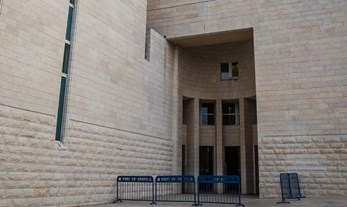
Q&A on the Override Clause
Israel Democracy Institute experts provide research, background and insight into WHY | WHO | HOW
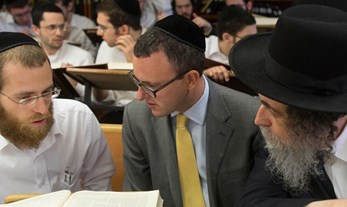
The Failures of the State Conversion System
Written By: Prof. Yedidia Z. Stern, Dr. Netanel Fisher
A new book from the Israel Democracy Institute
exposes the failures of the State conversion system over three decades

Who will be Overridden by the “Override Clause”?
Written By: Yohanan Plesner
The good news is that despite the unprecedented offensive which aims at dealing a significant blow to the Supreme Court, the majority of the Israelis still have trust in this institution. In fact, the levels of trust in the court are much greater than those of the Knesset and the Government

